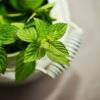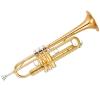I don't even know how to begin this thread without it sounding like just more premature hype over a fairly new compound.
Since I was 13 years old, I've had treatment-resistant major depression. I've tried every single class of antidepressant currently out there - without exception, various flavors of psychotherapy. and a hefty amount of treatments that sounded plausibly applicable to depression, going as far as having investigational compounds synthesized both domestically and overseas. Very few of these worked at all. Some maybe helped a bit, and two worked noticeably (selegiline and tianeptine), albeit temporarily.
I'm now in my 50s. When did that happen?
Enough background - you get the idea.
I was reading up on J-147 one day and decided to have some synthesized. It's essentially a synthetic analog of curcumin that is stable upon ingestion, something that is sorely needed since curcumin is amazing in animal studies where it's overwhelmingly administered by injection. Curcumin taken orally doesn't fare too well since it is broken down readily in several biochemical pathways and apparently when entering the duodenum with the subsequent pH change that occurs, little is absorbed intact. It appears that when the molecule was designed there was an unanticipated effect. The molecule seemed to have an affinity for the mitochondria and increased ATP production via ATP synthase. ATP is your primary energy source and precipitously declines in aging.
I'd highly recommend going over to PubMed and reading journal abstracts on the topic and then, should the full article not be available for free, making your way over to SciHub to read the full text. if you get nothing else from this post, you should keep those links.
When the compound was delivered, I began to try and figure out the appropriate human dose based on the dosage used in mice. I escalated the dosage of the powder every two days beginning at 10mg taken upon awakening and making my way up to 40mg where I began to wake up without a hint of depression. Truly no depression at all. That's not to say I couldn't push my luck and end up with an acute depression. But this is rare, of much less magnitude, and shorter in duration.
Long term use could be considered nootropic, and an increase in memory recall is absolutely there, though not for all things. I'm going to skip over this topic since I don't have solid data on this. You can read up on the animal studies. They too experienced improved memory, and in a very rare occurrence, the animal data seemed to largely apply to what self-experimenters are experiencing.
Side effects?
Nothing major has so far been observed long term. Short term it seems that a minority of people experience a fairly quick onset of sleepiness and a feeling of being cold near the middle of their day, which is relieved by taking a nap. This seems to be due to taking too high a dose, too soon after initially taking this compound. Backing off on the dose by only 5 or 10mg for only a couple of days seems to get around this issue. There can also be a feeling of too much energy at the start. Not a caffeine or amphetamine type of energy, but more a natural energy. I enjoyed this phase since I was able to think about doing something such as bike riding, and then do it without any hesitancy or having to convince myself to get started. Motivating myself was effortless. This largely dissipated after a few weeks, and while I enjoyed this feeling, other may not, and so I'm listing this as a potential side effect. One bipolar friend did cut his dose to 20mg daily, and is comfortable at that level long term. The other noted side effect in some, was a raise in blood pressure. This tended to occur in those that already had high blood pressure, and appears to just require an anti-hypertensive medication readjustment.
I personally experienced some weight loss over the year I've been taking this compound. I lost approximately 15 lbs. For some this may be a good thing, but I'm thin to begin with and had to consciously increase my caloric intake a bit to maintain my weight. This makes sense, in light of the effect this compound seems to have on the mitochondria and likely one's metabolic rate.
Personally, I don't considering these potential side effects as being major, or even close to the side effects of standard medications. There was no feeling of some drug altering my perception. No sedation. No blunted moods. I felt alive and would happily greet the day. Best of all, it felt like it was all me.
So if you have long standing depression, now, as I did then, you're likely skeptical...and you should be. Most posts made here on Longecity are probably dominated by the placebo effect, or the person is self reporting during the "romance phase" of a new drug treatment in which everything is just right. The full spectrum of side effects hasn't yet kicked in; the medication hasn't yet fizzled out as the body adjusts back to its depressive set point.
I don't want to be that guy. Good intentions, but a bit premature in one's observations and conclusions.
When I wrote about obtaining the J-147 and figuring out the ideal dosage (just above), that was nearly a year ago. The antidepressant effects have not worn off at all. Not one iota. Additionally, more very diverse benefits keep appearing. The one, perhaps more amazing than the antidepressant effects, was my newly acquired athletic abilities. I was never athletic, and I still don't appear to be anything but a thin guy, but I can now keep up with most 30 year olds for sure and a good percentage of 20 year olds when playing field games. It's crazy, and it's awesome.
I wondered if the compound was fundamentally resetting something in my body and so I stopped taking the stuff to see what was due to the compound, and what was due to physical changes that would remain after stopping it. Within about four days, all the effects described so far disappeared. It took four days after starting the J-147 for the positive effects to show up, and the same four days for them to disappear after stopping it. A bit of a bummer, but still pretty amazing.
Hopefully you're skeptical enough to be thinking to yourself; "Sounds great, but you're only one data point. Odds are that this won't pan out the same way for me. n=1? Pffft!"
There is most certainly that chance. However, similar to the fact that I'm approaching a year on J-147, there's another detail I've held back. So far approximately 20-30 people have been trying this around my area. The response rate is somewhere around 75%. To be clear, people are taking it for many reasons. There are a few in their 80s that are taking it for "normal aging" a lack of energy and not feeling engaged in life; a few with autoimmune disease, and several with major depression, both unipolar and bipolar. Other conditions that seem to respond are some flavors of neuropathy in the legs and feet, as well as lethargy, post treatment, due to chemotherapy for cancer. The bipolar people have all remained on their standard meds while taking the J-147 since they (probably wisely) didn't want to risk a manic phase. Though all of them still never really experienced full relief of their depression through standard treatments. I'm not telling you to take on your own treatment regimen, I'm just passing on the facts as well as my personal observations. All the information in this post should be taken as such. Let me also reemphasize the very limited number of people experimenting with J-147, and the even fewer that I have access to.
So how does fisetin play into this?
Fisetin is a plant flavonoid (7-hydroxyflavonol) that differs from quercetin by possessing one less hydroxyl group. It is thought to be a senololytic compound on its own. There is even a clinical trial currently looking at one aspect of its potential senolytic activity (see trial description here).
I had a kilogram of the powder on hand and took the somewhat large dosages described in the clinical trial orally, with pretty much nothing noticeable to report. Subjectively it was pretty disappointing. However, since I had so much of the stuff around, I poured a little into my hand whenever I thought about it, generally when I awoke and before going to bed. I'd estimate the powder weight to be about 200mg taken twice each day.
While I had always been really disappointed by taking plant flavanoids in the past, so much so that I never really gave them any thought no matter what claims were made for them in animal studies, this one was different.
Over a period of maybe two weeks, I began to change from a late night person with pretty poor sleep quality, to a person that would get tired each evening at 9:30 like clockwork. I'd wake up from an awesome night of sleep at 6:30 am. Normally I would go to sleep at about 3 am and wake at 11am, with mediocre sleep quality at best. When I began waking at 6:30 in the morning, it was such a drastic change that cognitively I felt uneasy, even if my body felt rested, and I'd try and go back to sleep without success. This early morning waking did back off a bit with continuing use, but not entirely. The amazing sleep has remained.
While I think that fisetin most certainly deserves its own thread, I believe that this fisetin report should be integrated into the J-147 report since I can't say that the observations attributed to fisetin aren't due to my having taken both compounds together. Both substances have complex metabolic pathways, but J-147 seems to be a bigger player in the AMPK pathways, while fisetin seems to be more of a PI3-K/Akt/mTOR compound (though there is most certainly overlap). One would think they'd complement each another, but you never know.
Last thing, in an effort to offer full disclosure. I do have problems when taking J-147 with either berberine or metformin. Others have not had this issue. Even a day after taking berberine, I simply feel bad when taking J-147. There is nothing I can pinpoint as a cause. Both metformin and berberine significantly act through AMPK, but other compounds that do so have had no interaction. This is a data point of one. It may just be me.
I order my J-147 from aas19@aasraw.com. That's not a plug, just a legitimate supplier that I've been using. Think of this as the “Materials and Methods” section. They ship quickly and have much lower pricing than any domestic suppliers. All I can say is that if you're going to try this self-experimentation, do make sure that you have a legitimate source. No point is trying and dismissing the compound after using something suspect. The powder should be tasteless, and it won't dissolve in your mouth.





























































